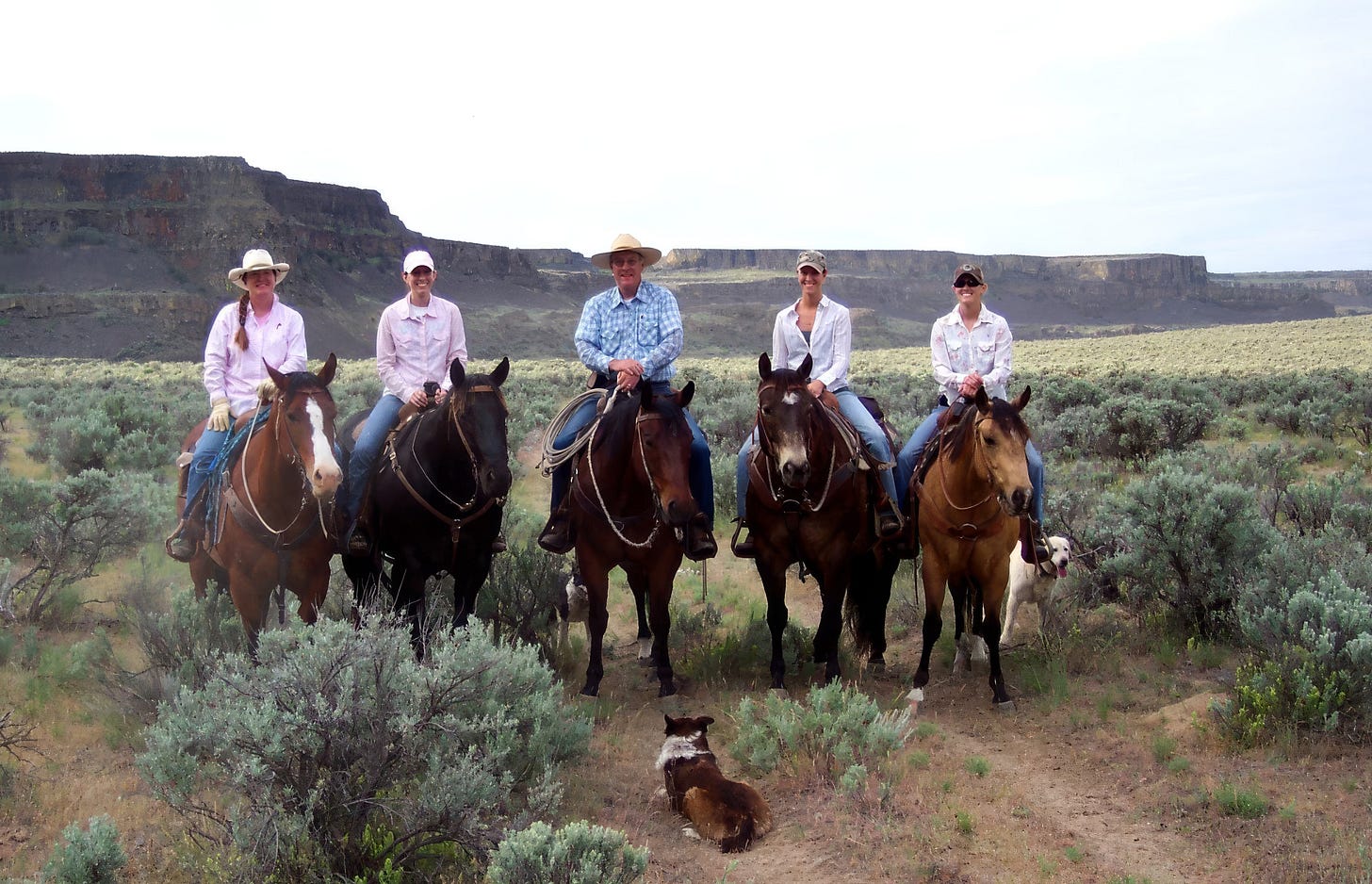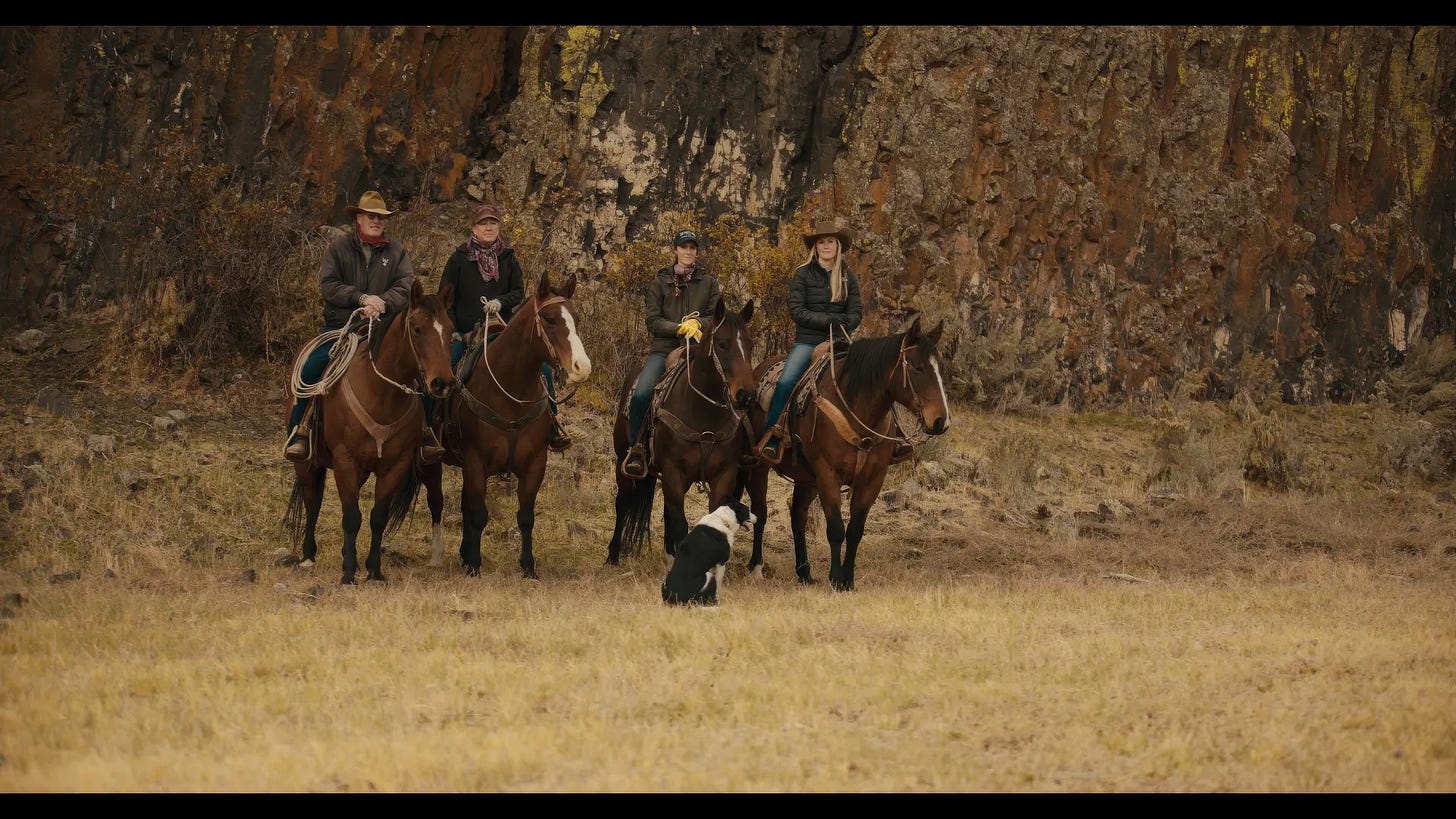“They Redefined a Pond—and Took the Range”: The King Ranch vs. Washington’s Ecology Machine
WAR ON RANCHERS: Washington Seizes the King Ranch Over STOCK PONDS
Washington State’s Department of Ecology (DOE) didn’t just fine a family ranch. It triggered a chain reaction that canceled long-standing state grazing leases, claimed ranch improvements, and threatened to criminalize routine stock-water work the Kings say has happened for generations. If you want to see how bureaucratic power can swallow a ranching operation whole, the King Ranch case is the blueprint.
The Charge: “Alkali Wetlands,” Not Stock Ponds
In February 2023, DOE announced a $267,540 penalty against Wade and Teresa King, alleging they “illegally damaged at least 23 alkali wetlands” near Park Lake in Grant County between January and April 2021 by excavating and deepening pools. DOE framed these as rare, protected alkali wetlands east of the Cascades. The Kings say they’re long-standing, permit-exempt stock-water ponds critical for livestock and wildlife. That definitional fight—wetland vs. stock pond—is the heart of the case.
DOE’s own materials highlight before/after aerial imagery (e.g., 2019 vs. 2021) and say field inspections corroborated impacts. Ranch advocates counter that aerials alone can mislead, especially where ponds have been maintained for decades and take on “natural” shapes over time. Either way, DOE’s official penalty list for early 2023 prominently includes the Kings’ case and amount.
“They didn’t just change the rules—they changed the labels. And once a stock pond becomes a ‘wetland’ on a state map, your ranch becomes a crime scene.”
What the State Did Next: Pull the Leases, Claim the Improvements
Following DOE’s action, the Department of Natural Resources (DNR) declared the Kings in default on state grazing leases and canceled them, asserting a right to forfeit ranch improvements on those state parcels. Reporting places the affected state acreage in the five-figure range and notes the Kings are challenging both the penalty and the lease cancellations. Appeals include the Pollution Control Hearings Board (PCHB) and separate civil suits against DOE and DNR.
For ranchers watching from across the West, that’s the gut punch: a regulatory allegation morphs into loss of range, water, and sunk capital before a court ever settles the core question—what, legally, are these ponds?
The Criminal Shadow
DOE referred the matter to the Washington Attorney General for a criminal investigation. As of this writing, no public criminal charges have been filed. The referral still hangs over the family like a sword—and it conveniently limits what records the state will release while “investigation is ongoing.”
A New Federal Twist: USDA Attention
This fight is no longer a quiet local scuffle. USDA Secretary Brooke Rollins has publicly voiced support for the Kingsand called for accountability in how states wield environmental rules against ranchers. Separate reporting underscores that USDA has been elevating rancher issues while working on a broader plan to rebuild the U.S. beef herd. The federal spotlight matters; it signals to Olympia that someone is watching.
How It Allegedly Started: More Than “Just Google Maps”
Early talk in ag circles focused on “Google Maps got them.” The fuller picture: an eyewitness report reached Fish & Wildlife in early 2021; DNR visited later that year; DOE took enforcement lead after that. DOE did use aerial imagery—but also says it conducted site visits. Your takeaway for viewers: the evidence stack is mixed, and the definitions(wetland vs. stock pond) carry the day.
Numbers That Matter
Penalty: $267,540 (Ecology).
Alleged sites: “at least 22–23” wetlands impacted.
Impact detail (as reported in ag trade): roughly 6.37 acres of wetlands plus 1.76 acres of buffer. (DOE descriptions vary by outlet; cited in ag press summarizing state records.)
Why Ranchers See “Overreach,” Not Conservation
To ranchers, this looks like a mid-stream definition change with retroactive punishment: activities they say were normal stock-water maintenance suddenly rebranded as wetland excavation, triggering fines, lease cancellations, and a criminal cloud. The Kings’ experts (soils, wetlands, hydrology) have publicly challenged the state’s wetland designations; DNR, when pressed, added “cultural resources” grounds to buttress lease cancellations—another moving target, in the ranch view.
Pattern, Not One-Off: Ecology’s Expanding Reach on Water
If you think this is just about one ranch, look at DOE’s broader posture on water enforcement and rights paperwork:
Elderly hay farmer fined: In September 2025, Ecology fined a Spokane County farmer $100,000 for irrigating 69 acres without authorization—after warnings, a cease-and-desist, and a lien. (Press and local coverage emphasize he’s an octogenarian.)
Mass water-rights claims: In Whatcom County (WRIA 1/Nooksack), DOE launched a full adjudication—mailing ~30,000 packets in March 2025 and telling virtually all surface and groundwater users, including single-home wells, to file court claim forms by deadlines into 2026 or risk losing legal priority. That has thousands of families and farms scrambling to prove rights on paper they’ve used for decades.
To ranchers, this looks like a paper gauntlet + heavy fines approach: if definitions don’t get you, documentation will.
What the Kings Want—and Why It Matters
The Kings have appealed the penalty, sued to restore their leases, and asked courts to recognize their ponds as permit-exempt stock water, not wetlands. If they succeed, it reins in a precedent that could otherwise let agencies retro-label working ranch landscapes and strip leases/improvements at will. If they lose, it becomes the template for more takings by regulation.
The Honest Broker Note
Washington agencies say they’re protecting rare habitats and upholding the law; ranchers say the law is being stretched and weaponized. Until a court draws a clear line between stock-water ponds and alkali wetlands on these specific footprints, ranchers statewide will assume they’re one mapping layer away from losing the range.
A Final Editor’s Disclosure:
DOE position: The agency maintains the Kings “damaged at least 23 alkali wetlands” and stands by enforcement taken to protect sensitive habitats.
Ranch position: The Kings and their experts argue these are long-established stock-water ponds; they deny wetland damage and call DOE/DNR actions unlawful overreach now under active appeal and litigation.
The Editor of this Article is not a fan of the Washington Department of Ecology.





